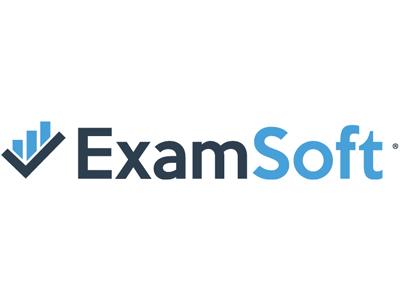
New approaches to academic integrity in a digital world
An unfortunate consequence of the emergency pivot to digital learning during the pandemic was an increase in opportunities for academic dishonesty. With formal assessments taking place remotely, many students were tempted to cheat. Moving forward, universities are finding out how digital tools can flag and deter dishonesty regardless of where testing takes place.
A Times Higher Education webinar, held in partnership with ExamSoft, explored new approaches to maximise academic integrity. The panel discussed how this issue is not always addressed as part of the curriculum. “We often assume that ethics and morality is something students bring with them from home,” said Divya Bheda, ExamSoft’s director of education and assessment. “Having conversations upfront about the impact of dishonesty can help. You may be taking away opportunities from your peers; educators have spent hours building test questions; it’s about equity.”
Claire Stewart, director of examinations and assessments at the University of Nottingham, believed students should have more buy-in to the assessment process. “Get them involved in the design and training, not just the outcomes,” she said. “Think about the language used in lectures. We should take the pressure off assessments, rather than saying, ‘if you do this you’ll get through’.”
Medicine is one field where professionalism and integrity is more embedded in the training process, said Terese Bird, an educational designer at Leicester Medical School. “We’re fortunate that there is a framework of professionalism throughout and that includes exploring attitudes towards plagiarism,” she said.
Bird described how Leicester Medical School had been using ExamSoft tools during formative assessments so students could get used to it and not be distracted when it came to summative assessments. “They know they can navigate backwards in a multiple-choice question, for example. They know what the rules and the constraints are, so it feels like an even playing field,” she explained.
Taking a more holistic view of how assessment reflects learning could also have an impact on academic integrity, argued Fadi Munshi, executive director of assessment at the Saudi Commission for Health Specialities. “Are we assessing student knowledge or their delivery of that? I may be a poor writer but very good at speaking and presenting, so will I lose points because I don’t know how to write a strong essay? How do we frame assessments to offer multiple modalities so students can demonstrate their knowledge and we grade that?” he asked.
Seeing assessment from the student’s perspective is fundamental, added Bheda. Some may not be familiar with the difference between quoting an academic reference and plagiarising, for example. “Students often engage in cheating when they don’t have study skills or time management skills, and these are skills they need to learn,” she said. “We need to make sure students are ready for success before we even think of taking punitive action.”
Munshi felt the most important factor in academic integrity was psychological safety. If students feel under significant pressure, they’re more likely to cheat. “Put more effort into deterring cheating than detecting. Raise awareness, set clear policies, announce penalties. Having more assessments or checkpoints throughout the year will help when it comes to learning and feedback,” Munshi concluded.
The panel:
- Divya Bheda, director of education and assessment, ExamSoft
- Terese Bird, educational designer and SCORE research fellow, Leicester Medical School
- Fadi Munshi, executive director of assessment, Saudi Commission for Health Specialities
- Claire Stewart, director of examinations and assessments, clinical associate professor, University of Nottingham
- Julia Gilmore, content manager – special projects, Times Higher Education (chair)
Watch the webinar on demand above or on the THE Connect YouTube channel.
Find out more about ExamSoft.

